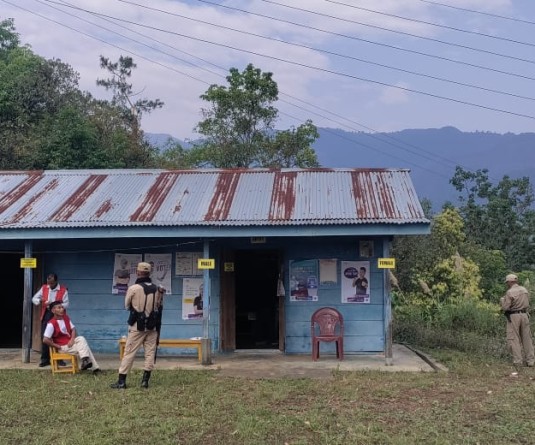
D. Nawapjan, a teacher from Tamil Nadu, receives the National Award from President Pratibha Patil as Human Resources Development Minister Kapil Sibal and Minister of State for HRD D. Purandareswari look on, in New Delhi. Photo: S. Subramanium.
New Delhi, September 5 (IANS): President Pratibha Patil Monday urged teachers to be “role models” by instructing students to fight corruption and be honest citizens. “In present times, values such as hard work, integrity, honesty and fighting against corruption... are very essential amongst our population,” Patil said after giving the national teachers awards here.
“You must be role models who instill good habits amongst the upcoming generation. You may not be leaders, however, you have the capabilities of creating leaders of the future,” she said. The president, along with Human Resource Development Minister Kapil Sibal and Ministers of State for Human Resource Development D. Purandeswari and E. Ahamed, gave the awards to over 300 teachers from across the country.
She also stressed that moral education was as important as conventional subjects. “Knowledge without values is incomplete. It is a value system that can prepare the younger generation to become responsible citizens who contribute to the welfare of society and advancement of the human race,” the president said. Instituted in 1958, the National Award to Teachers are given by the president on Teacher’s Day every year, which is celebrated in the memory of former president Sarvepalli Radhakrishnan.
Varied background, one aim: Nation-building through teaching
New Delhi, September 5 (IANS): They come from different parts of the country, different backgrounds, but what these 301 people have in common is that they are the architects of India’s future and now recipients of the National Award for Teachers. The share a constant zeal to empower and educate children: some work to empower the girl child, some for those with special abilities and some for tribals. The fields vary, not the basic objective.
In his 50s, from the distant village of Wakching in Nagaland, T. Shahlem Konyak’s biggest challenge is bringing them to the classroom. “Educating children once they are in classroom is easy,” Konyak says. “Bringing them to the classroom is most difficult as most parents want children to work in the fields. The students are so poor that they cannot even come to school.” The man proudly wears a red-and-white sash, symbolising his tribe, across his shoulder. “It is a part of our identity,” he says.




